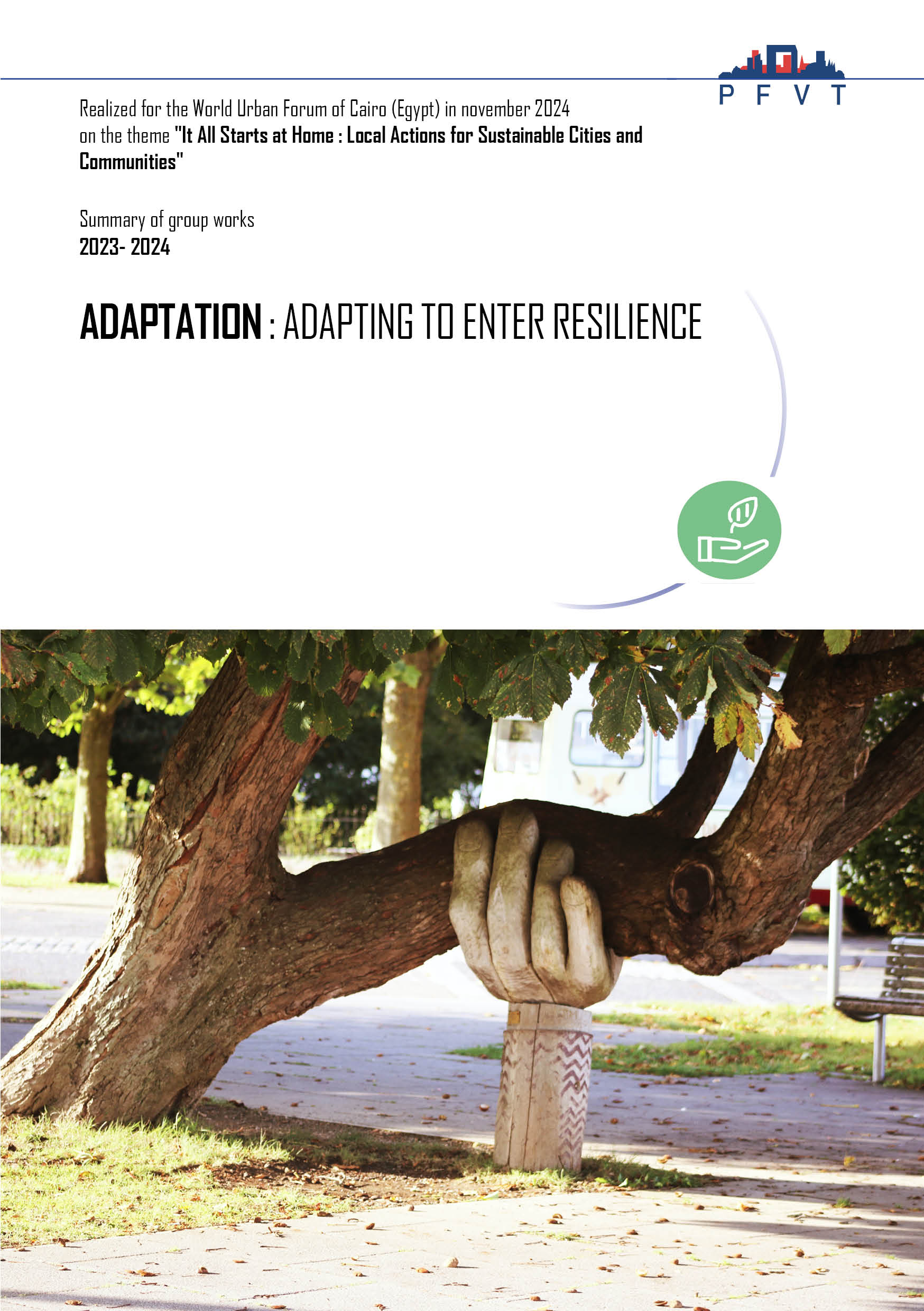Adaptation: Adaptation and resilience of territories

Adaptation refers to the functional adjustment of the living being to its environment to adapt to major shocks and sudden and chronic traumas, and the capacity of the actors of a living area to transform themselves to learn from these fragilities and emerge collectively strengthened. Climate change constitutes a major issue but it is not the only one. The maintenance of biodiversity, sobriety in the management of resources, sustainable town planning and land development models or the management of health crises are also linked to it. If resilience describes the ability of a system to continue functioning after having suffered a shock, the objective of adaptation to climate change is to anticipate climate change in order to limit its impacts, or even to benefit from them. left. Certain sectors are particularly vulnerable, such as the informal sector. Faced with this observation, anticipated adaptation solutions must be put in place, such as nature-based adaptation solutions. Although these solutions have a significant cost, this cost of prevention must be compared to the cost of inaction, which is much higher. The wish of the group is to take into account the major temporalities of the action (2030, 2040, 2050) in order to visualize, using a matrix, the challenges of sustainable territory: resilience, sobriety, inclusion and creativity for each horizon.



